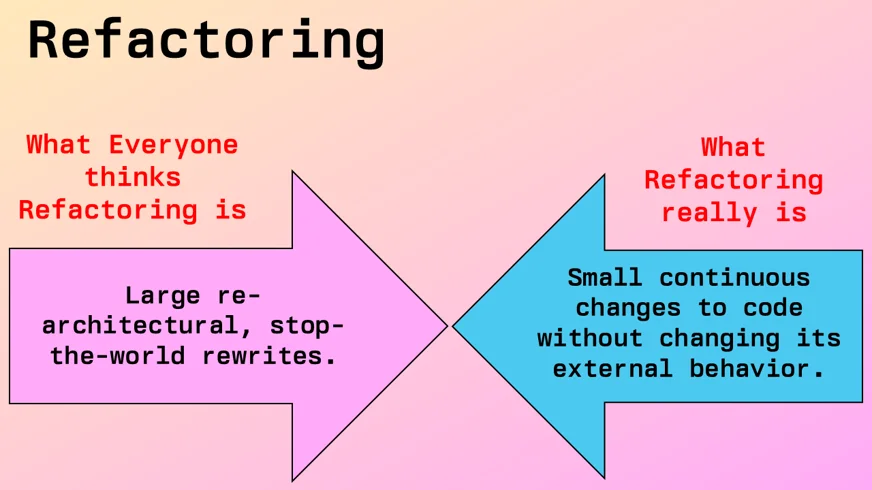Stephan Schmidt - September 18, 2025
Refactoring - Everyone Gets It Wrong
What refactoring really is and how it helps removing technical debt
TL;DR: Technical debt isn't solved by large-scale rewrites but by continuous, incremental refactoring during feature development—CTOs should create space for developers to improve code design with every change rather than waiting for a major cleanup project. Shield teams from pressure to ship features with low quality, as constant small refactorings prevent the need for costly rewrites and keep velocity sustainable.
When talking to CTOs, many of them talk about technical debt and how it hinders their development and demotivates developers. Technical debt makes development more risky, slows it down, and makes introducing bugs more likely.
In the same discussion, refactoring comes up. A refactoring of their code is necessary and would help them get out of technical debt. Developers push for a refactoring and business pushes for more features.
This is a false dilemma.

The misunderstanding at its core is what refactoring really is. Developers think refactoring is a major undertaking, rewriting code for weeks to clean everything up. If you read the refactoring book though, refactoring is changing the code with small changes to improve the design and keep the exterior behavior the same.
If it takes several weeks to get out of your technical debt, it’s not refactoring but a rewrite.
Instead, refactoring means constantly changing the code. During development of a feature, if the design can be optimized, refactor it. At the end of developing a feature, if the design of the code can be improved, refactor it. Constant refactoring keeps the code clean, flexible, and readable. Constant refactoring prevents the need for a rewrite.
As CTOs, push developers to constantly refactor code to keep it clean and top notch. As CTO, shield developers from business pressure to deliver features with low code quality.
About me: Hey, I'm Stephan, I help CTOs with Coaching, with 40+ years of software development and 25+ years of engineering management experience. I've coached and mentored 80+ CTOs and founders. I've founded 3 startups. 1 nice exit. I help CTOs and engineering leaders grow, scale their teams, gain clarity, lead with confidence and navigate the challenges of fast-growing companies.
